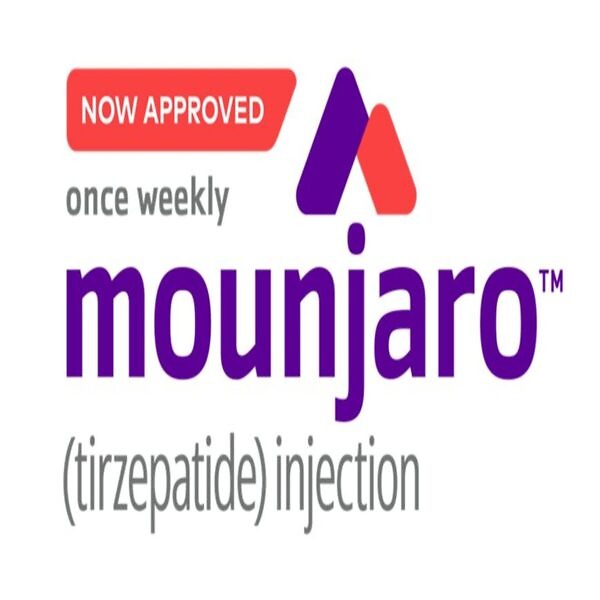Ciprofloxacin Tablets – Ciproxin Generic
Ciprofloxacin Tablets is available in 4 strengths
- Ciprofloxacin 100mg Tablets
- Ciprofloxacin 250mg Tablets
- Ciprofloxacin 500mg Tablets
- Ciprofloxacin 750mg Tablets
£5.99 – £33.50
CompareCompare- Ciprofloxacin 100mg Tablets
- Ciprofloxacin 250mg Tablets
- Ciprofloxacin 500mg Tablets
- Ciprofloxacin 750mg Tablets
- Description
- Additional Information
- Brand
- How To Use
- Product Details
- Side Effects
- Ingredients
- How to Store
- Patient Information leaflet
- Reviews (0)
- Questions & Answers
Ciprofloxacin Tablets – Ciproxin Generic
Introducing “Ciprofloxacin Tablets – Ciproxin Generic” – Your Trusted Antibiotic Solution!
Are you seeking a reliable antibiotic to combat bacterial infections? Look no further! Our Ciprofloxacin Tablets, a generic equivalent to Ciproxin, are here to provide you with effective relief. Ciprofloxacin belongs to the esteemed fluoroquinolone family, known for its potent antibacterial properties.
Key Features:
- Active Ingredient: The powerhouse behind our Ciprofloxacin Tablets is ciprofloxacin, a robust antibiotic renowned for its efficacy in eliminating bacteria causing various infections.
- Versatile Strengths: Tailor your treatment to your specific needs with our range of strengths:
- Ciprofloxacin 100mg Tablets
- Ciprofloxacin 250mg Tablets
- Ciprofloxacin 500mg Tablets
- Ciprofloxacin 750mg Tablets
- Targeted Bacterial Elimination: Ciprofloxacin works by selectively targeting and killing bacteria responsible for infections. Its precision ensures effective treatment without harming healthy cells.
- Ciprofloxacin is used in adults to treat the following bacterial infections:
• respiratory tract infections - • long lasting sinus infections
- • complicated urinary tract infections
- inflammation of kidney
- • inflammation of prostate gland due to bacterial infection
- • genital tract infections in men and women
- • intra-abdominal infections
- • skin and soft tissue infections
- • bone and joint infections
- • anthrax inhalation exposure
- Pet-Friendly: Extend the benefits of Ciprofloxacin to your furry friends! Our tablets are suitable for treating bacterial infections in both cats and dogs, providing a convenient solution for pet healthcare.
Why Choose Ciprofloxacin Tablets?
- Proven Effectiveness: Backed by the fluoroquinolone family’s reputation, Ciprofloxacin Tablets have consistently demonstrated their efficacy in combating bacterial infections.
- Convenience and Flexibility: With a range of strengths available, you can adapt your treatment plan to the severity of the infection, ensuring optimal results.
- Trustworthy Generic Equivalent: Our Ciprofloxacin Tablets offer a cost-effective alternative to brand-name medications, without compromising on quality or effectiveness.
- Pet Health Support: Extend the care to your beloved pets with the same trusted formula, making it easier to manage the health of your entire family.
Usage Guidelines:
- Follow your healthcare provider’s instructions for dosage and duration.
- Administer tablets with or without food, as directed.
- For pet use, consult your veterinarian for proper dosage and administration.
Ensure your well-being and that of your pets with Ciprofloxacin Tablets – the dependable choice for tackling bacterial infections effectively. Order now and experience the relief you deserve!
Ciprofloxacin Tablets Reviews
After using Ciprofloxacin Tablets, it’s helpful to let others know about your experience. Reviews of an item help other users know that medicines received have helped the condition it is claimed for, how well the treatment worked or any issues to be aware of. We invite our users to leave a review of both their treatment and of the service provided. Click on the reviews tab to see if there has been feedback on this item.
What is the price of Ciprofloxacin Tablets?
The price of Ciprofloxacin Tablets starts from £5.99
Where can you buy Ciprofloxacin Tablets?
You can buy Amoxicillin Injection at Dock Pharmacy Essex UK, UK Online Pharmacy.
Can you buy Ciprofloxacin Tablets Over the counter?
Ciprofloxacin Tablets is not available to buy over the counter. You need a prescription to buy Ciprofloxacin Tablets
| Brand | |
|---|---|
| Strenght | 100mg Tablets, 20 Tablets, 250mg Tablets, 20 Tablets, 500mg Tablets, 20 Tablets, 750mg Tablets, 10 Tablets |
Brand
Ciprofloxacin
How To Use
How to take Ciprofloxacin
Always take this medicine exactly as your doctor or pharmacist has told you.
Check with your doctor or pharmacist if you are not sure.
Tell your doctor if you suffer from kidney problems because your dose may need to be adjusted
The treatment usually lasts from 5 to 21 days, but may take longer for severe infections. Always take this medicine exactly as your doctor has told you. Check with your doctor or pharmacist if you are not sure how many tablets to take and how to take Ciprofloxacin
Swallow the tablets with plenty of fluid.
Do not chew the tablets because they do not taste nice.
Do try to take the tablets at around the same time every day.
You can take the tablets at mealtimes or between meals.
Any calcium you take as part of a meal will not seriously affect uptake. However, do not take Ciprofloxacin tablets with dairy products such as milk or yoghurt or with fortified fruit juices (e.g. calcium-fortified orange juice). Remember to drink plenty of fluids while you are taking Ciprofloxacin.
Product Details
What you need to know before you take Ciprofloxacin
Do not take Ciprofloxacin: • if you are allergic to ciprofloxacin, to other quinolone drugs or to any of the other ingredients of this medicine (listed in section 6). • if you are taking tizanidine (see Section 2: Other medicines and Ciprofloxacin) Warnings and precautions Talk to your doctor or pharmacist before taking Ciprofloxacin. • You should not take fluoroquinolone/quinolone antibacterial medicines, including Ciprofloxacin, if you have experienced any serious adverse reaction in the past when taking a quinolone or fluoroquinolone. In this situation, you should inform your doctor as soon as possible. • if you have ever had kidney problems because your treatment may need to be adjusted • if you suffer from epilepsy or other neurological conditions. • if you have a history of tendon problems during previous treatment with antibiotics such as Ciprofloxacin • if you are diabetic because you may experience a risk of hypoglycaemia with ciprofloxacin. • if you have myasthenia gravis (a type of muscle weakness) because symptoms can be exacerbated. • if you have heart problems. Caution should be taken when using Ciprofloxacin, if you were born with or have family history of prolonged QT interval (seen on ECG, electrical recording of the heart), have salt imbalance in the blood (especially low level of potassium or magnesium in the blood), have a very slow heart rhythm (called ‘bradycardia’), have a weak heart (heart failure), have a history of heart attack (myocardial infarction), you are female or elderly or you are taking other medicines that result in abnormal ECG changes (see section 2: Other medicines and Ciprofloxacin). • if you or a member of your family is known to have a deficiency in glucose-6-phosphate dehydrogenase (G6PD), since you may experience a risk of anaemia with ciprofloxacin. • if you have been diagnosed with an enlargement or “bulge” of a large blood vessel (aortic aneurysm or large vessel peripheral aneurysm). • if you have experienced a previous episode of aortic dissection (a tear in the aorta wall). • if you have been diagnosed with leaking heart valves (heart valve regurgitation). • if you have a family history of aortic aneurysm or aortic dissection or congenital heart valve disease, or other risk factors or predisposing conditions (e.g. connective tissue disorders such as Marfan syndrome, or Ehlers-Danlos syndrome, Turner syndrome, Sjögren’s syndrome [an inflammatory autoimmune disease], or vascular disorders such as Takayasu arteritis, giant cell arteritis, Behcet’s disease, high blood pressure, or known atherosclerosis, rheumatoid arthritis [a disease of the joints] or endocarditis [an infection of the heart]). If you feel sudden, severe pain in your abdomen, chest or back, which can be symptoms of aortic aneurysm and dissection, go immediately to an emergency room. Your risk may be increased if you are being treated with systemic corticosteroids. – If you start experiencing a rapid onset of shortness of breath, especially when you lie down flat in your bed, or you notice swelling of your ankles, feet or abdomen, or a new onset of heart palpitations (sensation of rapid or irregular heartbeat), you should inform a doctor immediately. For the treatment of some genital tract infections, your doctor can prescribe another antibiotic in addition to ciprofloxacin. If there is no improvement in symptoms after 3 days of treatment, please consult your doctor. While taking ciprofloxacin Tell your doctor immediately, if any of the following occurs while taking Ciprofloxacin. Your doctor will decide whether treatment with Ciprofloxacin needs to be stopped. • Severe, sudden allergic reaction (an anaphylactic reaction/ shock, angio-oedema). Even with the first dose, there is a small chance that you may experience a severe allergic reaction with the following symptoms: tightness in the chest, feeling dizzy, sick or faint, or experiencing dizziness when standing up. If this happens, stop taking Ciprofloxacin and contact your doctor immediately. • Prolonged, disabling and potentially irreversible serious side effects Fluoroquinolone/quinolone antibacterial medicines, including ciprofloxacin, have been associated with rare but serious side effects, some of them being long lasting (continuing for months or years), disabling or potentially irreversible. This includes tendon, muscle and joint pain of the upper and lower limbs, difficulty in walking, abnormal sensations such as pins and needles, tingling, tickling, numbness or burning (paraesthesia), sensory disorders including impairment of vision, taste and smell, and hearing, mental health effects which may include, but are not necessarily limited to, anxiety, panic attacks, confusion, or depression, memory impairment, severe fatigue, and severe sleep disorders. There are no medicines that have been established as being effective treatments for the symptoms of long lasting or disabling side effects associated with fluoroquinolones. If you experience any of these side effects after taking ciprofloxacin, then do not take any further doses and contact your doctor immediately. You and your doctor will decide on whether to continue treatment, considering alternative options. • You may experience psychiatric reactions when taking Ciprofloxacin, including when taking it for the first time. If you suffer from depression or psychosis, your symptoms may become worse under treatment with Ciprofloxacin, in rare cases, depression or psychosis can progress to thoughts of suicide or suicide attempts. If this happens, stop taking Ciprofloxacin, and contact your doctor immediately. You may not notice some changes in your mood and behaviour so it is very important to tell your friends and family that you are taking Ciprofloxacin, and that there may be rare psychiatric side effects. Others may notice changes and help you quickly identify any symptoms that you need to talk to your doctor about. • Pain and swelling in the joints and inflammation or rupture of tendons may occur rarely. Your risk is increased if you are elderly (above 60 years of age), have received an organ transplant, have kidney problems or if you are being treated with corticosteroids. Inflammation and ruptures of tendons may occur within the first 48 hours of treatment and even up to several months after stopping of Ciprofloxacin therapy. At the first sign of pain or inflammation of a tendon (for example in your ankle, wrist, elbow, shoulder or knee), stop taking Ciprofloxacin, contact your doctor and rest the painful area. Avoid any unnecessary exercise as this might increase the risk of a tendon rupture. • If you suffer from epilepsy or other neurological conditions such as cerebral ischemia or stroke, you may experience side effects associated with the central nervous system. If seizure happens, stop taking Ciprofloxacin and contact your doctor immediately. • Quinolone antibiotics may cause an increase of your blood sugar levels above normal levels (hyperglycaemia), or lowering of your blood sugar levels below normal levels, potentially leading to loss of consciousness (hypoglycaemic coma) in severe cases (see section 4). This is important for people who have diabetes. If you suffer from diabetes, your blood sugar should be carefully monitored. • You may rarely experience symptoms of nerve damage (neuropathy) such as pain, burning, tingling, numbness and/or weakness especially in the feet and legs or hands and arms. If this happens, stop taking Ciprofloxacin and inform your doctor immediately in order to prevent the development of potentially irreversible condition. • If your eyesight becomes impaired or if your eyes seem to be otherwise affected, consult an eye specialist immediately. • Diarrhoea may develop while you are taking antibiotics, including Ciprofloxacin, or even several weeks after you have stopped taking them. If it becomes severe or persistent or you notice that your stool contains blood or mucus, stop taking Ciprofloxacin and contact your doctor immediately, as this can be life-threatening. Do not take medicines that stop or slow down bowel movements. • Tell the doctor or laboratory staff that you are taking Ciprofloxacin if you have to provide a blood or urine sample. • If you suffer from kidney problems, tell the doctor because your dose may need to be adjusted. • Ciprofloxacin may cause liver damage. If you notice any symptoms such as loss of appetite, jaundice (yellowing of the skin), dark urine, itching, or tenderness of the stomach, contact your doctor immediately. • Ciprofloxacin may cause a reduction in the number of white blood cells and your resistance to infection may be decreased. If you experience an infection with symptoms such as fever and serious deterioration of your general condition, or fever with local infection symptoms such as sore throat/ pharynx/mouth or urinary problems you should see your doctor immediately. A blood test will be taken to check possible reduction of white blood cells (agranulocytosis). It is important to inform your doctor about your medicine. • Your skin becomes more sensitive to sunlight or ultraviolet (UV) light when taking Ciprofloxacin. Avoid exposure to strong sunlight, or artificial UV light such as sunbeds. Other medicines and Ciprofloxacin Tell your doctor or pharmacist if you are taking, have recently taken or might take any other medicines. Do not take Ciprofloxacin together with tizanidine, because this may cause side effects such as low blood pressure and sleepiness (see Section 2: “Do not take Ciprofloxacin”). The following medicines are known to interact with Ciprofloxacin in your body. Taking Ciprofloxacin together with these medicines can influence the therapeutic effect of those medicines. It can also increase the probability of experiencing side effects. Tell your doctor if you are taking: • Vitamin K antagonists (e.g.warfarin, acenocoumarol, phenprocoumon or fluindione) or other oral anti-coagulants (to thin the blood) • theophylline (for breathing problems) • phenytoin ( for epilepsy) • probenecid ( for gout) • ropinirole ( for Parkinson’s disease) • methotrexate (for certain types of cancer, psoriasis, rheumatoid arthritis) • tizanidine (for muscle spasticity in multiple sclerosis) • olanzapine (an antipsychotic) • clozapine (an antipsychotic) • metoclopramide (for nausea and vomiting) • cyclosporin (for skin conditions, rheumatoid arthritis and in organ transplantation) • other medicines that can alter your heart rhythm: medicines that belong to the group of antiarrhythmics (e.g. quinidine, hydroquinidine, disopyramide, amiodarone, sotalol, dofetilide, ibutilide), tricyclic antidepressants, some antimicrobials (that belong to the group of macrolides), some antipsychotics. • zolpidem (for sleep disorders) Ciprofloxacin may increase the levels of the following medicines in your blood: • pentoxifylline (for circulatory disorders) • caffeine • duloxetine (for depression, diabetic nerve damage or incontinence) • lidocaine (for heart conditions or anaesthetic use) • sildenafil (e.g. for erectile dysfunction) • agomelatine (for depression) Some medicines reduce the effect of Ciprofloxacin. Tell your doctor if you take or wish to take: • antacids • omeprazole • mineral supplements • sucralfate • a polymeric phosphate binder (e.g. sevelamer or lanthanum carbonate) • medicines or supplements containing calcium, magnesium, aluminium or iron If these preparations are essential, take Ciprofloxacin about two hours before or no sooner than four hours after them. Ciprofloxacin with food and drink Unless you take Ciprofloxacin during meals, do not eat or drink any dairy products (such as milk or yoghurt) or drinks with added calcium when you take the tablets, as they may affect the absorption of the active substance. Pregnancy and breast-feeding If you are pregnant or breast-feeding, think you may be pregnant or are planning to have a baby, ask your doctor or pharmacist for advice before taking this medicine. It is preferable to avoid the use of Ciprofloxacin during pregnancy. Do not take Ciprofloxacin during breast feeding because ciprofloxacin is excreted in breast milk and can be harmful for your child. Driving and using machines Ciprofloxacin may make you feel less alert. Some neurological adverse events can occur. Therefore, make sure you know how you react to Ciprofloxacin before driving a vehicle or operating machinery. If in doubt, talk to your doctor.
Side Effects
Possible side effects
Like all medicines, this medicine can cause side effects, although not everybody gets them. The following section contains the most serious side effects that you can recognize yourself: Stop taking Ciprofloxacin and contact your doctor immediately in order to consider another antibiotic treatment if you notice any of the following serious side effects: Rare (may affect up to 1 in 1,000 people) – Cases of long lasting (up to months or years) or permanent adverse drug reactions, have been associated with quinolone and fluoroquinolone antibiotics. These may include tendon inflammations, tendon rupture, joint pain, pain in the limbs, difficulty in walking, abnormal sensations such as pins and needles, tingling, pricking burning, numbness or pain (neuropathy), fatigue, sleep disorders, memory impairment, mental health effects which may include, but are not necessarily limited to, anxiety, panic attacks, confusion, or depression, as well as impairment of hearing, vision, and taste and smell. There are no medicines that have been established as being effective treatments for the symptoms of long lasting or disabling side effects associated with fluoroquinolones. – Seizure (see Section 2: Warnings and precautions) Very rare (may affect up to 1 in 10,000 people) – Severe, sudden allergic reaction with symptoms such as tightness in the chest, feeling dizzy, sick or faint, or experience dizziness when standing up (anaphylactic reaction/shock) (see Section 2: Warnings and precautions) – Muscle weakness, inflammation of the tendons which could lead to rupture of the tendon, particularly affecting the large tendon at the back of the ankle (Achilles tendon) (see Section 2: Warnings and precautions) – A serious life-threatening skin rash, usually in the form of blisters or ulcers in the mouth, throat, nose, eyes and other mucous membranes such as genitals which may progress to widespread blistering or peeling of the skin (Stevens-Johnson syndrome, toxic epidermal necrolysis). Not known (frequency cannot be estimated from the available data) – Unusual feelings of pain, burning tingling, numbness or muscle weakness in the extremities (neuropathy) (see Section 2: Warnings and precautions) – A drug reaction that causes rash, fever, inflammation of internal organs, hematologic abnormalities and systemic illness (DRESS Drug Reaction with Eosinophilia and Systemic Symptoms, AGEP Acute Generalised Exanthematous Pustulosis). Other side effects which have been observed during treatment with Ciprofloxacin are listed below by how likely they are: Common (may affect up to 1 in 10 people): – nausea, diarrhoea – joint pain and joint inflammation in children Uncommon (may affect up to 1 in 100 people): – fungal superinfections – a high concentration of eosinophils, a type of white blood cell – decreased appetite (anorexia) – hyperactivity or agitation – headache, dizziness, sleeping problems, or taste disorders – vomiting, abdominal pain, digestive problems such as stomach upset (indigestion/heartburn), or wind – increased amounts of certain substances in the blood (transaminases and/or bilirubin) – rash, itching, or hives – joint pain in adults – poor kidney function – pains in your muscles and bones, feeling unwell (asthenia), or fever – increase in blood alkaline phosphatase (a certain substance in the blood) Rare (may affect up to 1 in 1,000 people): – muscle pain, inflammation of the joints, increased muscle tone and cramping – inflammation of the bowel (colitis) linked to antibiotic use (can be fatal in very rare cases) (see Section 2: Warnings and precautions ) – changes to the blood count (leukopenia, leukocytosis, neutropenia, anaemia), increased or decreased amounts of a blood clotting factor (thrombocytes) – allergic reaction, swelling (oedema), or rapid swelling of the skin and mucous membranes (angio-oedema) (see Section 2: Warnings and precautions) – increased blood sugar (hyperglycaemia) – decreased blood sugar (hypoglycaemia) (see Section 2: Warnings and precautions) – confusion, disorientation, anxiety reactions, strange dreams, depression (potentially leading to thoughts of suicide, suicide attempts, or complete suicide), (see Section 2: Warnings and precautions) or hallucinations – pins and needles, unusual sensitivity to stimuli of the senses, decreased skin sensitivity, tremors, or giddiness – eyesight problems including double vision (see Section 2: Warnings and precautions) – tinnitus, loss of hearing, impaired hearing – rapid heartbeat (tachycardia) – expansion of blood vessels (vasodilation), low blood pressure, or fainting – shortness of breath, including asthmatic symptoms – liver disorders, jaundice (cholestatic icterus), or hepatitis – sensitivity to light (see Section 2: Warnings and precautions) – kidney failure, blood or crystals in the urine, urinary tract inflammation – fluid retention or excessive sweating – increased levels of the enzyme amylase Very rare (may affect up to 1 in 10,000 people): – a special type of reduced red blood cell count (haemolytic anaemia); a dangerous drop in a type of white blood cells (agranulocytosis ) (see Section 2: Warnings and precautions); a drop in the number of red and white blood cells and platelets (pancytopenia), which may be fatal; and bone marrow depression, which may also be fatal – allergic reactions called serum sickness- like reaction (see Section 2: Warnings and precautions) – mental disturbances (psychotic reactions potentially leading to thoughts of suicide, suicide attempts, or completed suicide) (see Section 2: Warnings and precautions) – migraine, disturbed coordination, unsteady walk (gait disturbance), disorder of sense of smell (olfactory disorders), pressure on the brain (intracranial pressure and pseudotumor cerebri) – visual colour distortions – inflammation of the wall of the blood vessels (vasculitis) – pancreatitis – death of liver cells (liver necrosis) very rarely leading to life-threatening liver failure (see Section 2: Warnings and precautions) – small, pin-point bleeding under the skin (petechiae); various skin eruptions or rashes – worsening of the symptoms of myasthenia gravis (see Section 2: Warnings and precautions) Not known (frequency cannot be estimated from the available data) – abnormal fast heart rhythm, life-threatening irregular heart rhythm, alteration of the heart rhythm (called ‘prolongation of QT interval’, seen on ECG, electrical activity of the heart) – influence on blood clotting (in patients treated with Vitamin K antagonists) – Feeling highly excited (mania) or feeling great optimism and overactivity (hypomania). – Syndrome associated with impaired water excretion and low levels of sodium (SIADH) – Loss of consciousness due to severe decrease in blood sugar levels (hypoglycaemic coma). See section 2 Other side effects include: – Increase of your blood sugar levels (hyperglycaemia) or lowering of your blood sugar levels leading to coma (hypoglycaemic coma). This is important for people that have diabetes. Cases of an enlargement and weakening of the aortic wall or a tear in the aortic wall (aneurysms and dissections), which may rupture and may be fatal, and of leaking heart valves have been reported in patients receiving fluoroquinolones. See also section 2. Reporting of side effects If you get any side effects, talk to your doctor or pharmacist or nurse. This includes any possible side effects not listed-in this leaflet. You can also report side effects (see details below). By reporting side effects you can help provide more information on the safety of this medicine. The United Kingdom Yellow Card Scheme Website: www.mhra.gov.uk/yellowcard or search for MHRA Yellow Card in the Google Play or Apple App Store
Ingredients
Ingredients
What Ciprofloxacin contains –
The active substance is ciprofloxacin (as hydrochloride).
Each film-coated tablet contains 100 mg ciprofloxacin (as hydrochloride).
Each film-coated tablet contains 250 mg ciprofloxacin (as hydrochloride).
Each film-coated tablet contains 500 mg ciprofloxacin (as hydrochloride).
Each film-coated tablet contains 750 mg ciprofloxacin (as hydrochloride).
How to Store
How to store Ciprofloxacin
Keep this medicine out of the sight and reach of children. Do not use this medicine after the expiry date which is stated on the carton and blister after EXP. The expiry date refers to the last day of that month. This medicinal product does not require any special storage conditions. Do not throw away any medicines via wastewater or household waste. Ask your pharmacist how to throw away medicines you no longer use. These measures will help to protect the environment.
Patient Information leaflet
Click here for the Patient Information leaflet
Please read before using the product
Only logged in customers who have purchased this product may leave a review.
Questions and answers of the customers
There are no questions yet, be the first to ask something for this product.
You Might Also Like
Strengths: 500mg Capsules, 100 Capsules
Learn More£19.20
- Availability: in stock
Strengths: 50mg Capsules, size: 28 Capsules
Learn More£6.50
- Availability: in stock
Treatments cefalexin capsules is used for:
- Respiratory tract (lung and airways) e.g. tonsillitis, pharyngitis and bronchitis
- Middle ear infections (otitis media)
- Skin and soft tissue (e.g. muscle) infections
- Bone and joint infections
- Infections of the reproductive organs and urinary tract (e.g. cystitis)
- acute inflammation of the prostate gland (prostatitis)
- Dental infections.
£5.50
- Availability: in stock
Other Products From This Seller
Steglatro Tablets – Ertugliflozin Tablets available in 2 strengths:
- Steglatro 5mg Tablets – Ertugliflozin 5mg Tablets
- Steglatro 15mg Tablets – Ertugliflozin 15mg Tablets
£49.50
- Availability: in stock
Original price was: £43.20.£39.50Current price is: £39.50.
Ursodeoxycholic Acid Tablets 250mg – Cholurso Tablets, 60 Tablets Introducing Cholurso Tablets the brand name of Ursodeoxycholic Acid Tablets 250mg – Your Solution for Gallstone Management and Liver Health Ursodeoxycholic Acid 250mg Tablets is a cutting-edge pharmaceutical formulation designed to positively influence bile composition, making it a versatile solution for various health concerns. Ursodeoxycholic Acid, […]
Learn MoreOriginal price was: £43.20.£39.50Current price is: £39.50.
- Availability: in stock
£156.00 – £210.00
Please note you need insulin pen needles to use Mounjaro Injection
Mounjaro Injection – Tirzepatide Injection, 4 Pre-filled Pens
Available in 6 strengths:
- Mounjaro 2.5mg Injection
- Mounjaro 5mg Injection
- Mounjaro 7.5mg Injection
- Mounjaro 10mg Injection
- Mounjaro 12.5mg Injection
- Mounjaro 15mg Injection
Learn More
£156.00 – £210.00
- Availability: in stock
Timoptol LA Gel – Timolol Eye Gel is available in 2 strengths
- Timoptol LA 0.5% Gel
- Timoptol LA 0.25% Gel
£7.50
- Availability: in stock
Original price was: £43.50.£39.75Current price is: £39.75.
One-Alpha Drops 2mcg/1ml – Alfacalcidol Drops 2mcg/1ml
Learn MoreOriginal price was: £43.50.£39.75Current price is: £39.75.
- Availability: in stock
Original price was: £5.99.£5.39Current price is: £5.39.
Ideal for irrigating and cleansing the eye, or a wound
Learn MoreOriginal price was: £5.99.£5.39Current price is: £5.39.
- Availability: in stock
Ultimate Surefit Erection Ring Set 15222 – Constrictor Rings For Erectile Dysfunction Experience Confidence and Pleasure with the Ultimate Surefit maintenance ring set – Your Key to Intimate Well-being Introducing the Ultimate Surefit Erection Ring, a premium solution meticulously designed for those seeking to overcome the challenges of erectile dysfunction. Crafted with precision and comfort […]
Learn More£58.50
- Availability: in stock
Original price was: £62.50.£56.49Current price is: £56.49.
SureEase Erection Rings 15085 – Constrictor Rings For Erectile Dysfunction Revitalize Your Intimate Moments with SureEase Erection Rings – Precision for Confidence and Pleasure SureEase Erection Rings are the discreet yet powerful solution designed to rekindle confidence and elevate pleasure for individuals facing challenges with erectile dysfunction. Crafted with precision, these constrictor rings provide targeted […]
Learn MoreOriginal price was: £62.50.£56.49Current price is: £56.49.
- Availability: in stock
£279.00 – £289.00
SomaErect Response II is available in 2 models:
- SomaErect Response II 15019
- SomaErect Response II XL 15888
£279.00 – £289.00
- Availability: in stock
Original price was: £331.50.£289.90Current price is: £289.90.
SomaErect Touch II 15013 – Vacuum Pump Erection Device Introducing SomaErect Touch II 15013 – Redefining Intimacy with Advanced Vacuum Pump Technology The SomaErect Touch II 15013 is an innovative vacuum pump erection device, meticulously engineered to provide a discreet, effective, and user-friendly solution for individuals dealing with erectile dysfunction. Embrace confidence and intimacy with […]
Learn MoreOriginal price was: £331.50.£289.90Current price is: £289.90.
- Availability: in stock





















Reviews
There are no reviews yet.